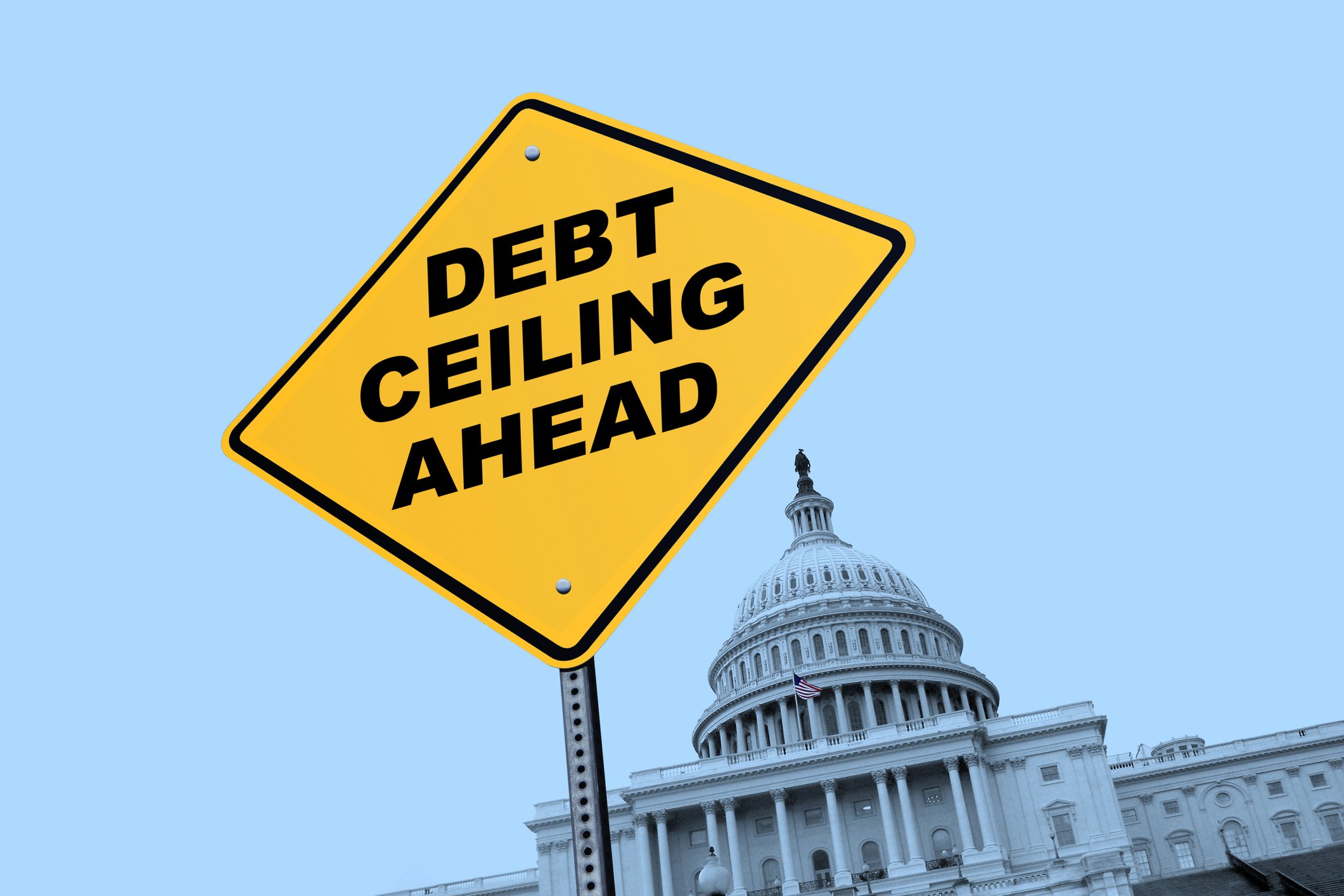Not all financial advisors are created equal, but it can be so hard to tell! Expert advice has always been difficult to quantify and rank. What makes one doctor better than another? Or one attorney better than their peers? Similarly, it’s tough to determine which financial advisor is the best one for you. Add in a fractured industry that’s loaded with jargon and a poor track record for transparency and you have what can feel like a near-impossible task.
For those reasons, we decided to breakdown the nine best questions to ask a financial advisor in 2021. These are the same questions we tell prospective clients to ask us and encourage them to ask of other advisors. So, if you’re tired of the posts that fail to cut through the noise, then this one’s for you.
How we got here
Referrals used to be how business got done. Get a few names from friends and family, make a few calls, and settle on the one with the nicest office and/or best bedside manner. The problem? Not all of these people were true financial advisors in the first place.
It helps to know that ‘financial advisor’ is not a protected title. Anyone can use that term regardless of their qualifications, services offered, or level of experience. The billion-dollar hedge fund manager out of New York might very well have the same title on their business card as the 19 year old TikTok sensation with a few viral posts on sticking to a budget. Both can make a claim to being financial advisors.
Moreover, financial advisors and the entire domain of personal financial planning is brand new territory. Law, medicine, and accounting have been around for thousands of years. Planning? The CFP Board was founded in 1985, so maybe 30-40 or so years depending on your definition of what constitutes financial planning. That’s not long. Industry norms, business models, regulations, best practices, and consumer perceptions are still being formed.
It was all about sales before financial planning and cohesive advice came into the picture. Insurance salespeople offered insurance from carriers. Stockbrokers sold stocks for brokerage houses. Mutual funds salespeople sold funds for fund companies. Bankers sold CDs and mortgages. It took time for a body of knowledge to come about that pulled these different segments together. I’d argue that this is the genesis of bonified financial advice. Advisors figured out how package and sell their knowledge to consumers independent of a product! Advice was no longer a small, value-added service that was tangential to making a sale. Advice evolved to become the offering itself. (Note: fee only investment advice has been around for quite a while, though it was only with the repeal of Glass-Steagall in 1999 that these investment-only advisors started moving into financial planning).
Why salespeople still populate the industry
The new model of financial advice for a fee didn’t spell the end of product salespeople. It was more like a small clump of snow that started rolling down a hill. It’s been picking up size and speed ever since.
Now financial advisors come in three flavors: commission, fee and commission, and fee-only. (Full disclosure – Carmichael Hill is a fee-only firm).
Commission only and fee-only advisors are easy to understand. Payment comes from a third-party product manufacturer, such as an insurance company, or directly from you in the case of fee-only. But the distinction isn’t so clear with fee and commission, or “hybrid”, advisors. (Hybrid advisors are also called “dually registered” advisors since they can act as a representative of a Registered Investment Advisor or as a salesperson for a Broker/Dealer).
So how can you cut through the hype and figure out who is offering advice, who is offering a product, when, and what you actually want in the first place!?
Read on. The nine questions that follow with help you cut through the nonsense.
Are you a fiduciary all the time or just some of the time?
Number one on the list of nine best questions to ask a financial advisor in 2021 is about fiduciary duty. A fiduciary is someone who is required to act in your best interests, and it is the highest standard of care available in the industry. Some advisors are fiduciaries all the time, some are fiduciaries in certain situations, and others are never fiduciaries.
If you’ve done your reading, you may have got lost with all of noise out there equating business models and compensation methods to whether or not someone is a fiduciary. It’s all garbage. Any advisor can be a fiduciary. The definition of a fiduciary has nothing to do with compensation – its solely about how an advisor balances their conflicts of interest with their duties to their clients.
But there are certain situations when advisors are required to act in your best interest! For example, any advisor that charges a fee for advice must act in your best interest. You are paying for their advice and not a product. They do not represent a product manufacturer in this arrangement and don’t have competing interests to balance. Their first and only obligation is to you, the client. Fee-only advisors are therefore always fiduciary advisors!
Hybrid advisors may also be fiduciary advisors at all times, but it is much more difficult. Its more common for this group to be fiduciaries in certain situations and not in others.
Product manufacturers want to grow revenue and sell as many of their products as possible. They enlist salespeople to help them do this, and those salespeople aren’t necessarily required to act in your best interest. They must follow a suitability standard, as opposed to a fiduciary standard, which allows a sale to move forward so long as it can be argued as suitable for your needs (i.e. solves a problem even if it isn’t necessarily the best or least expensive way to do it).
Odds are the advisor is only a fiduciary in certain situations if they charge fees as well as commissions. Read into questions three and six below and have the advisor specify what services they offer and how they charge for those services.
For example, let’s say that you engage a hybrid advisor to complete a financial plan. They put together a detailed analysis and a series of written recommendations to help you reach your goals. A $1m life insurance policy is recommended. That advisor wore their fiduciary hat while completing the plan, but they may not necessarily wear the same hat while selling you the insurance policy. They could recommend a policy with a more expensive carrier because that carrier is running a sales contest in which they are competing. None of that meets the bar for required mandatory disclosure, by the way.
It may not make much difference to you in the end. You might prefer the convenience of a one stop shop even if it costs you extra. It may not matter to you that your advisor sells you things you need, even if its not necessarily the best stuff for you.
Remember, you might need a product that a fee-only advisor can’t provide! Financial salespeople aren’t inherently bad. Just be sure to know when you’re being “sold” and when you’re being advised. The line can get blurry.
What kind of clients do you typically serve?
All doctors graduate from medical school, but you wouldn’t see an oncologist if you broke your foot. You wouldn’t visit with a personal injury attorney if you wanted to bring a wrongful termination suit. The same logic applies in the financial advisory world. Not all advisors have the same experience and skill sets.
Financial advisors tend to follow a niche. Some of them niche by working within certain industries or large companies, such as dentists, teachers, or Amazon employees. Others carve out a niche by becoming hyper-proficient with a certain set of services, such as retirement planning or stock option planning and execution. Others still focus on generational subsets or life experiences, such as retiring baby boomers or divorcees.
The list is almost endless. What’s critical is that the financial advisor you choose has the right skillset for you! This isn’t to say that a generalist or someone that has come highly recommended but isn’t in your niche will do a bad job, but its comforting to know that the advisor you’ve chosen has built their business and put food on their table by successfully helping others just like you.
Not entirely unrelated, but its worthwhile to find out how many clients this advisor currently serves and whether you’ll be working with them or someone else in the firm when you sign on the dotted line. Most advisors can handle around 100 clients before they max out their time, though robust technology usage or a complex client base can ratchet this figure up or down.
According to financial industry veteran and Nerds Eye View blog publisher Michael Kitces, “the average experienced lead advisor has 96 clients”.
How will I be charged and how are you compensated?
The last decade has done wonders for transparency across the financial services industry, but that doesn’t mean its easy to see how much you’re paying. It’s crucial to know your total all-in costs when working with a prospective advisor.
These are some of the most common fees you’ll see:
- Fees for advice – These can come in the form of an hourly fee, a one-time project fee, a retainer fee[1], or a fee that’s assessed as some percentage of the total assets your advisor manages. The last item in that list is known as an Assets under Management (AUM) fee. Fees under this arrangement are commonly debited directly from your brokerage account(s) and are frequently coded on quarterly statements as a “mgmt fee”.
- Fees for transactions – These are fees charged by the custodian to buy and sell securities within your brokerage accounts. A custodian is like a bank but for securities and investments as opposed to cash. Schwab and Fidelity are among the largest custodians in the nation.
- Expense ratio – These are charged by fund companies and exchange-traded fund (ETF) companies to cover operational expenses. They can range from as low as 0% to as much as 3% or more per year!
Fee-only advisors receive compensation solely from bullet one. You pay them directly as the client. Hybrid/dually registered advisors can be compensated by fees for advice as well as from the expense ratio on funds. Some fund share classes are created with higher expense ratios in order to cover the commissions owed to the financial salesperson.
This is another area where it can get murky. Advisors can receive compensation from something known as a 12(b)1 fee. This is baked into the expense ratio and paid to advisors as a commission. Advisors aren’t allowed to charge an advice fee that involves a recommendation to purchase a fund with a 12(b)1 expense. It amounts to charging the client twice – once to recommend the fund and again to buy the fund. Or if they do (which they shouldn’t), then there needs to be a corresponding adjustment on your advice/management fee to offset the commission the advisor earned through the 12(b)1 fee. *WHEW*
The SEC has stepped up enforcement on this and it is much less common than it used to be. Still, its worth paying attention to. Its also something that can be easily avoided by hiring a fee-only advisor.
How painful is it if I get this part wrong?
It can hurt quite a bit. Consider this: the financial advisor recommends you invest $100,000 into an S&P 500 fund.
- Invesco S&P 500 Index (SPICX) – expense ratio 1.3% ($1,300/year)
- Schwab S&P 500 Index (SWPPX) – expense ratio of 0.02% ($20/year)
The delta between these funds is $1,280/year. The two funds both track the S&P 500 and are nearly identical. Round it up for quick accounting. What would you do with an extra $1,300 a year in your pocket?
The fiduciary financial advisor is obligated to recommend the lowest cost option. Revisit question one – is your advisor a fiduciary at all times???
Ask your prospective advisor about the all-in costs to doing business. The devil is in the details, and those small details can add up.
What are your qualifications and experience?
I’ll reiterate the opening line to this article – Not all advisors are created equal! Finding the right one is as much about finding someone you trust as it is about finding someone who is competent. The first is subjective and up to your own personal preferences for who makes the cut. But there are tools to help you identify who has the chops and who doesn’t when it comes to financial planning.
Understanding an advisor’s qualifications is a good start. Many tout the regulatory licenses they hold as part of their qualifications. This should indicate to you that the advisor can legally transact and perform the functions they promised they can. It is not an endorsement of skill or competence. In fact, the SEC famously pronounces in many different sections of their website that they do not endorse any financial professional titles.
Every investment advisor, whether hybrid or fee-only, is required to pass certain exams to work in the industry. These are table stakes. The exams do not test an advisor’s skill, competency, or proficiency in financial planning or investment management. They test knowledge of industry regulations and basic market functioning. They are the bare minimum needed to work in the industry and *hopefully* stay out of trouble with the law.
An advisor’s education and professional designations tell a more complete story.
Understanding professional titles
There are over 200 different designations available to financial professionals. The proliferation of titles has grown so rampant over the years that an entire cottage industry in advisor education now exists. Some of these designations are little more than glorified sales training, but its incredibly difficult for a layperson to know or determine this.
That’s why the Financial Industry Regulatory Authority (FINRA), a powerful financial industry self-regulatory organization, put together an outstanding guide to financial advisor professional designations. This tool allows consumers to check the educational requirements and prerequisites needed for an advisor to gain the qualification, the ongoing continuing educations requirements, how and where to verify if the advisor can actually use the title they say they can, as well as the issuing organization of the credential.
A cursory flip through the list of designations will show that many of the 200+ in existence are now defunct, meaning that the issuing organization has gone under. They no longer certify new planners nor maintain enforcement and ongoing education for the use of their marks. While there isn’t anything wrong per se with a planner that promotes a defunct credential, it should tip you off to probe further.
Of those 200 designations, there are less than a handful that are widely accepted as the gold standard in their domain:
- CERTIFIED FINANCIAL PLANNER™ (CFP®) – Personal financial planning
- Chartered Financial Analysts (CFA®) – Investment Management
- Chartered Life Underwriter (CLU®) – Life Insurance
The gold standard for personal financial planning
There are about 90,000 CFP® practitioners in the US, which means about 40% of all financial advisors in the US now hold the gold standard credential. A lack of this credential shouldn’t be an automatic disqualifier. Some older advisors with decades of experience never bothered to jump on the bandwagon after gaining their knowledge in the proverbial “trenches”. But those with this credential should get some extra points.
The credential requires advisors to hold a minimum of a bachelor’s degree and have no less three full years of work experience. Holders of the credential must also complete a rigorous series of coursework followed by a capstone program and grueling 8-hour exam. The pass rate changes with each exam but hovers around 60%. It’s tough. A further thirty hours of continuing education is required every two years.
Perhaps most importantly, CFP® credentialed advisors must hold themselves to a fiduciary standard at all times. This includes hybrid advisors who use the mark!
Have you ever been cited for bad behavior by a regulator or professional organization?
Tsk tsk! The SEC maintains a database for all public disclosures that firms and investment advisors are required to make. This includes all customer complaints, enforcement actions, criminal history, bankruptcies, and a slew of other relevant disclosures. Additionally, the FINRA Broker Check tool offers similar information for investment advisors who also act as brokers. Asking about any checkered past that an advisor has is a great step to take, but its better if you search for your potential advisor ahead of time and come prepared.
For example, you may see that an advisor has gone through a bankruptcy or settlements with credit card companies. Was it poor financial management on their part? A nasty custody battle and legal bills? A prolonged and expensive illness? The disclosures can be illuminating and informative, but they may only tell half the story.
Additionally, all investment advisors must provide you with their Form ADV part II prior to or at the time of engagement. This regulatory disclosure details the full history of the advisor’s public disclosures. It’s also available and searchable online through the SEC’s Investment Advisor Public Disclosure Page.
A good advisor working at a bad company
You may find a great advisor who seems like a perfect fit. Can you say the same thing for the company they are affiliated with? Sometimes good advisors find themselves in difficult positions when the institution they work for is being punished for practices outside of the advisor’s control. The embattled Wells Fargo group comes to mind as the most recent broker to face widespread scrutiny, but this happens with much smaller regional groups as well.
Odds are you won’t seek out an advisor that works at a dubious institution in the first place. But you may find an unsavory institution in an advisor’s work history when you comb through their form ADV part II. This alone shouldn’t be cause for concern. Good advisors can end up in bad organizations for reasons that are sometimes out of their control, but they tend not to stay long. But an advisor that jumps from one sinking ship to the next should be a red flag.
Will you provide me with a list of all the services you provide?
Financial advisors generally offer the same basic services, such as a retirement analysis and investment management. But some advisors offer ancillary services that aren’t uniform in the industry.
Take tax planning, for example. Some advisors make this a focal point of their practice and even go so far as to include tax preparation into their packaged set of services. Others may have a niche, such as divorce, and will carry the liability insurance needed for them to act as an expert witness and provide testimony. This is something most planners cannot or will not do.
Others may offer family office types of services, such as bill pay, to every tier of their client base. This white-glove service is yet something else that many advisors do not offer.
We point this out to illustrate a point: fees may be similar across several planners you interview but the service offering could be quite different. Ask beyond the basics and inquire about any non-traditional services that sets the advisor apart from their competition.
Checking for red flags
This next part is basic, but you may be surprised by the answers you get. Your advisor should be able to enumerate on exactly what kind of services you will get for the fee you will pay. Independent advisors can do this without breaking a sweat; they set their own business model after all. But salespeople-type advisors may get tripped up describing what you’re getting as part of the all-in cost.
This is because they frequently join institutions that have outsourced the main components of an advisor’s job to offsite teams. Other departments create the financial plan, manage the investment offerings, process insurance applications, and create the advisor’s marketing materials. The advisor’s primary job is to find clients. All this outsourcing means that the advisor may flounder when pressed about what it is they are doing to earn the fees. They are effectively a middleman.
Again, this isn’t necessarily bad. They may be acting as a conduit to some highly skilled teams that you would have difficulty accessing if not for them. But this may not be what you are expecting. Other advice professions, such as medicine and accounting, don’t operate like this. You probably wouldn’t visit a physician-like intermediary for a cancer screening if given the choice.
Ask about your potential advisor’s experience and press them for the services they offer. The answers can be telling.
Will you offer a written analysis of my financial situation and your recommendations?
A written financial plan is a hallmark of a bonified financial planner. It is the deliverable you receive for the advice you have paid for. It serves as the mile marker for the changes you implement and those yet to be implemented. While there is no legal requirement for advisors to deliver their recommendations in any particular format (carrier pigeon is allowed), any advisor worth their salt will deliver a written analysis and recommendations.
Its worthwhile to ask your advisor for a sample of their work. Virtually all planners have a “dummy” client built into their systems for occasions just like this. You should look for the following items in their deliverable:
- A summary sheet detailing current financial standing and goals
- A recommendation sheet detailing all changes the planner believes are necessary to help reach your objectives and improve your finances
- A list of assumptions used in the plan
- A clear finding of whether you are or aren’t on track to meet your goals
- Probabilistic modeling. Most software works on linear assumptions that aren’t true to life. Ensure the advisor has added elements of variability to your plan. Monte Carlo modeling tends to be a favorite amongst advisors.
The advisor will have a customized deliverable specific to their niche. No two advisors will produce the same work, but all should cover the essentials listed above. Judge for yourself whether you want to engage a planner that skips one of the base building blocks to financial planning listed above.
Where will my money be held and how can I see it?
This question is one of the most important of nine best questions to ask a financial advisor in 2021. It’s a great defense to help protect you from fraud.
Regular banks can’t hold investment property like mutual funds, stocks, and bonds. A custodian is required for that task. You’ve probably heard of the big custodians like Schwab, Fidelity, eTrade, Vanguard, and TD Ameritrade (recently acquired by Schwab) but probably never gave it a second thought. Your prospective advisor will have a relationship with one or several different custodians. These custodians will/should have an online interface that will allow you to log on and check your accounts. They also offer FDIC insurance on the cash that you do deposit and SIPC insurance on your investment property.
Separately and independent of the custodian, your advisor may offer their own portal through which you can view your accounts as well. This is often because custodians provide limited information. You may want to know your performance history since hiring your advisor, or over the last year, or just how you did yesterday. Custodians don’t generally offer performance reporting. Your advisor may use a different software package to make that available to you (hence the separate portal).
Fraud prevention
The reason custodian selection is so important is because it can impact your fees, experience, and most importantly serve as your primary defender against fraud. Large institutional custodians spend tens of millions of dollars a year combatting fraud. They have strict, battle-tested policies in place to protect you. They staff robust teams who spend all day every day thwarting attempts to access your account.
This isn’t to say smaller custodians don’t have robust fraud prevention measures in place – they do. But sometimes it’s good for your sleep and general health to know that you have the power of a major institution behind you.
Separation of powers
There can be great reasons to ensure that your custodian and investment advisor aren’t one and the same. The separation of powers can help stop bad behavior and prevent (or make it incredibly difficult) for your advisor to ‘go rogue’ and disappear with your money. But there isn’t any requirement that your advisor and custodian be different parties!
Case in point, Bernie Madoff acted as both a custodian and an investment advisor for his clients.
The tie-up between advice and custody is still a common practice in the country’s largest institutions. Goldman Sachs, Bank of America Merrill Lynch, JP Morgan Chase, and Morgan Stanley all offer custody as well as advisory services. The risk of a bad actor that causes you harm is low when dealing with a giant conglomerate. They face intense scrutiny from both their shareholders and regulators to run a tight ship.
But bad apples can and do find their way in every so often. All the more reason to ask your potential advisor about their liability insurance. They should carry policies that protect you from fraud that occurs at their firm as well as losses due to bad/negligent advice.
Fighting crime without the cape
Its very difficult for your advisor to take your money and run when it is at a third-party institution. But the best defense you have against it may simply be to check your brokerage statement. This is sent to you no less than quarterly but is available monthly with most custodians. It will highlight your transaction history and show all debits and credits in and out of your account. Look for unauthorized debits from your account. If money is leaving then you’ve got a bad actor or a case of identity theft!
Note – your brokerage statement must be sent directly to you as a matter of law. It can no longer be mailed to your investment advisor first per the fallout from the Madoff scandal.
What is your investment philosophy and policies toward trading?
It’s getting more and more common to vote your values with your money. Does your advisor’s philosophy fit with how you want your money to help accomplish your goals?
Are there industries you don’t want exposure to? Companies whose business practices you find abhorrent? Companies whose social mission you want to support? If so, is your advisor in a position and philosophical alignment to help you do this?
ESG (ethical, social, governance) investing is rising in popularity, but not all advisors offer it. Those that do may simply offer pre-packaged products, such as socially responsible mutual funds.
But there’s more to it than that. A growing number of advisors are outsourcing investment management entirely. They may offer model portfolios through an algorithmic trader or third-party investment advisor. This doesn’t make them a bad fit; many robos and outside shops do a great job. It can also free up more of your advisor’s time to focus on you. But it does mean that the level of customization you’re able to receive is limited.
This is why your potential advisor’s investment philosophy so important! If you have exotic assets in your portfolio, such as limited partnerships or private investments, or foreign assets, or just want a customized investment strategy that isn’t offered in a typical model portfolio, then you need to grill your advisor to make sure they can do what you need them to!
The meat and potatoes
Beyond your values, you should inquire about how they’re actually making the sausage. Do they use low cost index funds or more expensive mutual funds? If they use mutual funds, when do they use them and why?
Does the potential advisor actively trade stocks and bonds? Do they engage in commodities trading such as gold, oil, and silver or do any futures trading? What about options trading? What is their position on crypto?
These may not seem like a big deal, but some asset classes are very speculative. Your advisor may have experience investing in these asset classes and may be able to make a good business case for you to do so, too. But if you haven’t ever done it, you may not want to start! Have the conversation early and come to terms on how your portfolio should be built.
The gravy
Your advisor may be able to offer real and meaningful value by peppering in additional investment strategies that are too time consuming for you to undertake. Find out what else your potential advisor can do for you:
- How will you incorporate investments you don’t manage, such as my 401(k), into the recommendations you make on the investments that you do manage?
- How will you incorporate the stock options I am awarded every year into my portfolio?
- Will you implement any tax-loss harvesting strategies in my portfolio?
- How will you handle the individual stocks I own that I don’t want to sell?
A good advisor will help craft a strategy that fits with your individual goals. Ask, probe, and discover how your advisor can work with you and whether their methodology is a good fit for your needs.
Additional Resources
Wish you could have skipped the details and got this in checklist form? These well-funded industry groups put out some sleek materials:
- Questions to Ask a CFP® Professional – Financial Planning Association
- Financial Advisor Checklist – National Association of Personal Financial Advisors
- 10 Questions to Ask Your Financial Advisor – CFP Board
Final Thoughts
These are the nine best questions to ask a financial advisor in 2021 – don’t be afraid to ask your potential advisor the tough questions! The answers they offer up can be the difference between a worry-free retirement and one that’s stacked with stress!
Working your way through this checklist may feel like an uncomfortable interrogation at times, and that’s ok. This will arguably be the defining moment of your working relationship. You should know what lies in store.
Lastly, this is a business relationship and not a marriage. It’s ok to change your advisor when they stop being a good fit. The process might be easier than you realize, too! Take it quarter by quarter, year by year, and communicate with your advisor when they fail to meet your needs.
The advisor exists to serve you.
[1] Retainer fees are brand new in the financial services world and not every state regulator is allowing them. You may see this with a small subset of advisors as a result.










